|
0 Comments
 Husband and wife producing team Ray Nowosielski and Ruth Vaca seem to everywhere these days. Their latest creation is the 10-episode podcast series, "George Bailey Was Never Born." a behind-the-scenes story of the beloved holiday classic 𝘐𝘵'𝘴 𝘢 𝘞𝘰𝘯𝘥𝘦𝘳𝘧𝘶𝘭 𝘓𝘪𝘧𝘦. We caught up (barely) with the always-on-the-go media-makers for a behind-the-scenes talk: Tell me about the new podcast that just dropped: (Ruth & Ray) It’s from iHeartMedia, all 10 episodes come out in November, called George Bailey Was Never Born. Our friend David Cassidy, who executive produced, describes it as “a nerd’s wet dream of a film school as a podcast.” It looks deeply into American identity and the human experience through the holiday classic It’s a Wonderful Life. One Apple Podcasts reviewer wrote, “This is the podcast that you didn't know you needed!” I think that was what we were going for. Ray co-created it, Ruth helped develop it and executive produced through our company True Stories. This a Double Asterisk production, a company co-owned with Bloomingtonian John Duffy, another exec producer, and the show was co-created by Kurt Engfehr, best known for his documentaries with Michael Moore. It's available wherever anyone listens to their podcasts, like Spotify, YouTube, etc. SaveGeorgeBailey.com gives more info and all the listening options. What's the synopsis for the "Ray and Ruth Story"? Ray mostly grew up in a suburb of Indianapolis, where he had what some would say was a very wholesome Midwest upbringing worthy of a classic sitcom before heading to Columbia College Chicago. Ruth was born in Mexico, migrated to south Chicago with parents and her two older siblings, then to northwest Indiana, south Florida and Bloomington simutaneously, an unpredictable and colorful upbringing worthy of a dramedy. We eventually met in New York City. Ruth was working at People Magazine, Ray was making documentaries. We had both chased big dreams. Ruth seeking a career in daytime talk show or radio, plus culinary arts. We met through a memorable hang-out with a mutual friend one night in NYC, at the Sidewalk Cafe in the East Village. Ruth suggested we walk to Sing Sing Karaoke Bar on St. Marks, where Ruth belted out “Maps” atop the bar. She avoided getting kicked out only due to the support of riled-up hipsters. What brought you to Bloomington? We moved to Bloomington in 2018 after many years of hard work in NYC to build our careers. Despite a lot of what felt like success, we still found the city to be a financially overwhelming place to start a family. We wanted more space and to be closer to family, and southern Indiana also has turned out to be a great place from which to grow our own production companies. How did you both connect with Morgensterns? When we moved to Bloomington, Ruth was upset there was no major book store, so we were thrilled when Morgensterns opened. At the time, Ruth was managing some PR for Ray’s latest work and connected with Morgensterns, resulting in the first podcast-related event at the bookstore. Mitch Teplitsky gave a great career-spanning interview with Ray and John Duffy, co-owners of Double Asterisk. Ruth has hosted the Spanish language storytime on multiple occasions. We love this place. What's on your nightstand now? (Ray): Fiction, currently re-reading John Duffy’s novel A Ballroom for Ghost Dancing, and non-fiction, Bruce Cannon Gibney’s interesting Boomer take-down A Generation of Sociopaths. (Ruth): I am more of an audiobook person, and I alternate about three books at a time. I am a memoir junkie, particularly celebrity. My favorite one I listened to this year is I’m Glad My Mom Died by Jennette McCurdy. It is well written, heart-breaking and transparent, about growing up as a reluctant child star with toxic parents. I also just started listening to Barbra Streisand’s memoir, which is 48 hours long. I hope to finish it by 2025. As husband and wife, what's it like working together? How do your different personalities and skills complement each other...or not! (Ray) Pure hell. Kidding. (Ruth) Yea, just the worst, only 4 out of 10 recommend. Actually, despite us being very different, we align well as producers and on vision for where we want to go. We work intensely and at a fast pace and understand each other's work life balance requirements. It would be hard for many to tolerate the ups and downs of the media biz. Who were your biggest creative influencers? (Ruth) I have so many, depending on the genre, but I would say, in the way I see myself in this industry as a self-deprecating and sarcastic humored person, Kathy Griffin in her Life on the D-List era. Wendy Williams, Cristina Saralegui, Rosie O’Donnell, Larry King, and Oprah for television and radio hosts. Anthony Bourdain for his brilliant writing and approach to food culture on television. Andy Warhol for his brilliant use of mocking consumerism and his off-beat, controversial, nonsensical yet intriguing films. Honestly, I may have too many influencers! If you could interview any other couple, who would it be? We would love just one dinner date with Eleanor and Franklin Roosevelt. This question is especially rigorous: what are your favorite beverages from the Morgenstern's cafe? (Ruth) I love the Matcha Soy Latte with light ice. (Ray) Coffee. Black. Any future projects or collaborations in the works? Everybody Has A Podcast with Ruth & Ray, first episode out next week. Check back to TrueStories.us from time to time to learn about projects as they come. What do you do for fun, to get your mind off of work? Guess we can’t get enough of the biz – when not doing family stuff or traveling, we tend to watch movies or TV. Ray likes Real Time with Bill Maher. Ruth prefers escapism and low-brow entertainment on stressful days, like Bravo and reruns of Sex and the City. And obviously, hang with our almost 5 year old, Pablo. (Ruth) I also love to cook, creative writing, make digital collage art, and take long-distance walks and hikes. (Ray) I like to hang at bars, bookstores, and take walks with Ruth around neighborhoods or cities. . What's something about you two that fans might not know? (Ruth) I am also a vegetarian and vegan chef who specializes in using whole foods and everyday delectable yet simple food ideas. You can follow my blog @veganishvegetarian. I hope to publish a cookbook in 2024. (Ray) Our podcast listeners likely don’t connect me to my work producing Barbara Kopple-directed documentaries, including one I’m particularly proud of that came out streaming on HBO Max last month, Gumbo Coalition. This month's Bloom Magazine also has a delightful story about Ray and Ruth, pick a free issue up at Morgenstern's or around town! By Harrison Sutton, Morgenstern's fiction expert
In an attempt to share my love of books with the massive group of Bloomington book-lovers, I thought it would be nice to talk in a candid way about what we love to read, why we love to read, and what we can find more of to read. These are my goals, yet I feel obligated to tell you that I have my biases. Before getting into the different types of novels one should check out given their interests or to try and create some taxonomy of new fiction, I have to acknowledge that I am only human. A weird and sulking guy with a really awesome job. I get to sit around and look at all the new novels, history tomes, celebrity ghost-written biographies, and even literary exegeses on hot dogs (Raw Dog: The Naked Truth About Hot Dogs by Jamie Loftus [9781250847751], $26.99 from Forge Books). (I have to add a note here that this is not a total view of my job here at Morgenstern’s Books, my wonderful kind boss will have editorial rights over this write-up and will not allow me to imply that I get paid just to sit on my ass.) Certain books catch my eye quicker than others. I have a tendency to lean towards the literary, especially if it’s weird (I run the Weird Fiction Book Club at the store, come join us on the third Wednesday of the month!). I get excited about awards season. Not the Oscars, though I do like to hate-watch the navel gazing as much as anyone else, but rather the National Book Awards or the Pulitzer Prizes which will always feel like a holiday when they are announced. I set aside the signed copies of new Colson Whitehead or Lorrie Moore books that we receive. I have a really serious obsession with Thomas Pynchon (I’ve read The Crying of Lot 49 at least four times). So, yes, I am aware that these predilections may set me up already as the pretentious reader that stiff-arms anything that smells like Reese’s Book Club. But my goal here is to try and create a dialogue, to learn from others, to broaden the horizons of not only my own reading habits but also, if I’m good at my job, yours as well. So for this first run, I wanted to share with you a write-up I did for fiction that has been released in the last year. You can also find this in the December Fiction edition of The Ryder, a wonderful local publication that really needs more recognition than it gets. They are doing a lovely job over there. Thanks for reading, Harrison Sutton Let Us Descend by Jesmyn Ward ($28 hardcover from Simon & Schuster) Picked for the Oprah Book Club, Jesmyn Ward’s new novel is everything you’d want from the back-to-back National Book Award Winning author. It is a gripping tale about grief and the torments of slavery that still haunt us today. Our narrator begins with the line, “The first weapon I ever held was my mother’s hand.” From that point on, we see Annis’ escape from a plantation and her internal dialogue begins to connect with a spiritual world as she traverses across the mid-19th century American countryside. Ward goes a step further than her last novel, Sing, Unburied, Sing, and focuses completely on the past, where the pain and hurt of so many Black Americans has its genesis. Her lyrical prose is in full force, the firmament above and the tilled soil beneath have such a breathtaking urgency. Just in her descriptions of the land, Annis not only shows us a voice that is developed and immediate, but also the soul-cleansing fervor of the world around us. It’s a gripping novel and a perfect gift for any reader. Tom Lake by Ann Patchett ($30 hardcover from HarperCollins) Literary superstar celebrity, Ann Patchett has released yet another commercially and critically successful novel with Tom Lake. The book is heavily inspired by Thornton Wilder’s play, Our Town. In the Author’s Note, Patchett maps out her goal for her work, “to turn the reader back to Our Town…[which] has been an enduring comfort, guide, and inspiration throughout my life.” The story is set in the early Covid months and centers on the relationship between three daughters who ask their mother to retell the story of her romantic relationship with the actor, Peter Duke. They pass the time hearing it all relived, the quaintness of small-town Michigan, the passion of two actors falling in love, and the power that stories have on all of us. Told in a first-person perspective whose voice lulls you into the heart-warming genius you expect from Patchett, the novel pulls you in and heals those broken bits of your heart left over from the pandemic. It is a charming and cozy tale that imparts the value of family and story. Gift this to your mother who misses you so very much. Crook Manifesto by Colson Whitehead ($29 hardcover from Penguin Random House) We continue with the late era Colson Whitehead crime novels that show what an author of such caliber can do when he wants to have fun. Crook Manifesto is technically a sequel to 2021’s Harlem Shuffle but the author and publisher noted it can be read as a standalone. Ray Carney, protagonist of both novels, tried to leave behind his life of crime and focus on the future, for him and the rest of Harlem. But as the 70’s chug on, the underbelly of the city crawls up, and there may be no way to avoid going back to the old ways. The writing is punchy with a staccato flow that creates a rich layer for the thriller to step above genre conventions. Some may forget that the two-time Pulitzer Prize winner began his career with a conspiratorial novel about elevator inspectors. This charm is in full force with these last two novels which have the joyous racketeering of language and character you crave. Anyone can pick up these books and find something valuable within the pages. The Maniac by Benjamin Labatut ($28 hardcover from Penguin Random House) Following the break-out success of his first book to be translated into English, When We Cease to Understand the World, Labatut focuses on John von Neumann, the progenitor of artificial intelligence. The novel is told through a cacophony of voices spoken by people who had come in contact with the genius of von Neumann. They all wonder at the immense genius of the man who had a hand in so much of our modern science. Not only did he help develop AI, von Neumann also laid foundational work of mathematics in quantum mechanics and game theory, and most notably created the implosion mechanism of the atomic bomb. While the blockbuster film, Oppenheimer, eschews his role to focus on Edward Teller, the importance von Neumann had on the Manhattan Project cannot be underestimated. The novel allows for this overlooked character to shine in all his dirty brilliance. It’s sparse, daring, and foremost a compelling story that is a perfect read for anyone wanting to follow up their viewing of the Nolan film with something equally as impressive. (Fun fact: an AI program designed the cover of the book) Blackouts by Justin Torres ($30 hardcover from Macmillan) Coming off his award-winning debut, We the Animals, Justin Torres’ new novel is a National Book Award finalist. Blackouts is a strange book, all the text is printed in a light brown shade, historical pictures abound, some pages look xeroxed from lost documents, and of course, there are lines that are blacked out. While the formal invention is worth the price of admission, the plot centers around a dying old man telling the story of a book about a book he tried to write in his youth. What follows can be reductively described as a queer House of Leaves. Themes of history, injustice, the erasure of LGBTQ+ identity all make its way into these tightly-wound pages, plagued by trauma and the recovered documents of pained historians. The idea of blackout poetry, poetry that is created by the literal marking out of words and phrases feeds into our current political moment. While it has been proven time and time again that the history that we have been fed often has striking omissions, particularly ones concerning minorities, Blackouts asks, “Well, what the hell can we do about that?” And as this remarkable sophomore epic treks along, the answer becomes clear: you make art out of it. There is no changing the past but shaping our futures with the beauty we can find is an obvious goal of Torres’. It is a literary feat that is a must-read for everyone. Penance by Eliza Clark ($30 hardcover from HarperCollins) Her debut novel, Boy Parts, blew up on TikTok with its graphic depiction of violence, sex, and human depravity. Eliza Clark’s sophomore effort is even more online. The book centers around a murder of a teenage girl by her classmates and the ensuing internet drama that an author suffuses herself. In the first page, a quick warning is given to the reader: everything that follows may be fake. Constructing itself as a document that one is now privy to, it reads “It is our fundamental belief that readers have the freedom and the right to read and judge a text for themselves - that contentious works with artistic merit should not be erased from history simply for causing offense.” These lines border on the meta-fictional, a reading that is surely not lost on the author. For what follows is a self-aware investigation in the ways which the Gen Z ethos infects our ability to face tragedy. Clark layers on irony and distancing contraptions to exhume a sense of morality lost on the terminally-online population. The faux-reporting style differs from her last novel, but is equally as engaging; instead of focusing on an immediate voice, the reader leans in through the facade to find a quiet hopeful heartbeat for a better world. America Fantastica by Tim O’Brien ($32 hardcover from HarperCollins) While books about Trump-era America written by older authors may have a justifiably bad rap, Tim O’Brien’s new novel, America Fantastica, dodges these pitfalls by committing to a tantalizing satire and featuring his remarkably strong prose. Boyd Halverson, alt-right “journalist” and troll, robs a bank, taking the teller hostage and setting in motion a chase across pandemic-era America in search for vengeance. A cast of characters rolls through the book expounding their opinions on the crumbling world around them. Monologues abound, the craze of people caught in the post-truth world seeps through to the reader. One of the epigraphs is from Hunter S. Thompson, the ur-journalist of modern American psychosis, reads, “We are not a nation of truth-lovers.” O’Brien full-heartedly invests himself in this idea, spinning a wild yarn in an attempt to create some understanding of our own country.
(Mitch) We know each other from your day job, which is...
(Tristra) I work as Chief Strategy Officer for Rock Paper Scissors. Makes me sound very fancy — break out the power suit! (laughs). But basically it just means I run the PR team. Where did you grow up? I grew up in Lee's Summit, Missouri. Now it's a western suburb of Kansas City. But at that time, it was like a little dying railroad town. Very monocultural. I watched Sesame Street and was like, "wow, there's all sorts of different kinds of people, that must be really cool!" (laughs) When did you come here? I came here for grad school in 2000. (for a phD in Central Eurasian Studies). Today I live in Harrodsburg, a small bedroom community, around 700 people. People are super nice. Many have lived there for generations. I love that I can walk out my door and get to to a beautiful natural spot easily. In fact, most of my book was written in my head as I was doing that, getting up at 5 am to walk Slava, my giant dog. What inspired you to write Starfall? If yo go to New Harmony, you'll see all sorts of odd things and think. A labyrinth out on the edge of town....the Working Men's Institute, with a gallery of original Renaissance paintings by Italian masters.... the room next door, full of giant river fish skeletons and rocks...people like Robert Dale Owen, a social reformer who managed New Harmony, and Frances Wright, one of the first American feminists. I thought, "Why is this here, in this little Indiana town? What is going on here? How come I had never heard of these people?" How long did it take you write it? I was doing research for years, everything I could get my hands on. There's a lot of great scholarly works and novels about about New Harmony. But it wasn't until the pandemic that I really started to begin writing. During the pandemic, my creative sprit was totally crushed. I was at home with my two children, while working full-time, alone — my husband was an essential worker. By the end of the day ... One day in February 2021, I took a trip to New Harmony. It was icy, frozen and cold. Nobody was there. I thought, "I've got to do it." I started walking like ten miles a day, and wrote like eight to ten hours a day. And that kickstarted it. You're self-publishing, correct? It's such an interesting time in publishing. I know I shouldn't say this to someone from an independent bookstore, but it's not a particularly commercial book, it's never going to sell a million copies — Hey, we're Morgenstern's, it's possible! (Laughs) I think it's a book for very specific people who really love it. So in that regard, I'd rather have control of my IP, and be able to write whatever I wanted. I guess I'm a little bit of a control freak, Mitch! (laughs) See, I didn't want to just write a historical fiction novel. Now, I totally love that genre. I've written a historical novel. But for this subject — "We're going to create utopia!" — it would be so cheesy. I couldn't do it. So I thought: what if I tried to tell a story that would draw people into the same dilemmas, vibe and spirit, but for cynical modern people who really have a hard time with utopia, which is completely understandable. "A story for cynical modern people who have a hard time with utopia" — that's a great phrase. Yeah, so I needed the Sci-Fi thing there. And I was thinking that, with climate change coming, there are going to be more and more openings for other attempts to create a community. And so it felt really appropriate to try to imagine such an experiment, on the same footprint as New Harmony. And the cool thing about writing a tale in two eras is you can have them talk to each other. Because the past and our present, and our understanding of the future, are all talking to each other. It sounds like it could be a television or streaming series... From your lips to my ears! We will continue the conversation in-person at the bookstore on Nov 10, 6:30 pm. T. will also have photo/slides to share from her excursions to New Harmony. 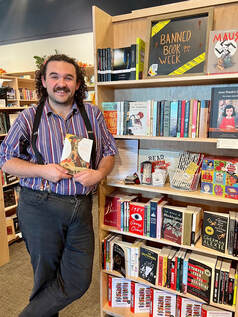 “Embrace diversity. Unite-- Or be divided, robbed, ruled, killed By those who see you as prey. Embrace diversity Or be destroyed.” - Octavia Butler, Parable of the Sower) Books for me have always been a bridge to something else. A bridge to a fantastical realm that I wish existed. A bridge to a happier outlook when I am feeling down. A bridge to a life that I don’t have the perspective to understand. A bridge connecting me to the author and every person touched by the words they put to paper. During the pandemic I started a reading group with some friends online in a desperate need for community when I, like many others, was feeling so alone, grappling with the world around me. We read a few books but the one that stopped me in my tracks and built a bridge for me was Parable of Sower by Octavia Butler. If you have not read the book, it is the story of Lauren Oya Olamina, told through her journal entries as she is forced out of her tight knit religious community and into a climate ravaged version of California. She along the way builds a family, creates a doctrine that we could all do good living by, and grows something new out of the crumbling world around her. That’s not even the bare bones of what the book actually becomes for the reader, but it’s the easiest way I can describe it at this moment. Parable of the Sower, like many great banned books, takes on big discussions of poverty, religion, race, womanhood, etc. The reasonings offered up for banning the title are often that the discussions of the aforementioned topics are too tough for children or young adults to be confronted by. “These things frighten people. It’s best not to talk about them.” "But, Dad, that’s like … like ignoring a fire in the living room because we’re all in the kitchen, and, besides, house fires are too scary to talk about” (Octavia E. Butler, Parable of the Sower). Reading books from a young age has always been an exercise for me in expanding my horizons and building bridges to the world around me that my privilege or perspective did not allow me to see otherwise. This book helped me to grapple with so many of the tough conversations happening in the midst of the global pandemic. From kids to adults, books like this help us to think about, discuss, and come to terms with the hard realities happening around us. Books like this build bridges so that we can see each other and empathize across the gender spectrum. Books like this help those in the middle and upper classes build bridges to understand the lived experiences of those in poverty. And books like this build bridges so we can become not only a more equal society, but also a more equitable, and most importantly more compassionate society. Banned Book Week works to bring to the forefront that we are not banning merely words printed on pages. We are banning diversity of perspective. We are silencing voices that don’t align with the imagined realities some in power have decided is canon. Banned Books Week serves to remind us that we must fight these challenges to these lived realities and keep reading free. “Freedom is dangerous but it's precious, too. You can't just throw it away or let it slip away. You can't sell it for bread and pottage.” (Octavia E. Butler, Parable of the Sower)
What was the biggest challenge or surprise you encountered when writing this book? I set out wanting to take readers on a wonder-filled journey to the center of the female body — a Magic School Bus ride that would enthrall and empower people about their own biology. But I quickly learned that our knowledge about the female body was filled with holes, myths, and misconceptions. So instead, I had to write, in a way, a book about why we don’t know what we don’t know. That turned out to be a much more difficult challenge, but also much more rewarding. I have seen only rave reviews (no doubt well-deserved!); I wonder if you have faced any pushback or criticism from any groups or regions, given the rise of banned books, the cultural divide in this country…and how you can respond to a parent or group uncomfortable with this subject? There is always criticism! Initially, I got a few critical reviews out of the UK pushing back my decision to dedicate the last chapter of the book to the history of gender affirmation surgery. To me, this chapter is central to what the book is about: it reveals better than any other how medicine’s assumptions about gender and enforced ideals about the female body harm anyone who falls outside that standard, including intersex people, nonbinary people, and trans men and women. It shows how medicine has often historically been a force for gatekeeping womanhood, in ways that have harmed all of us. A few comments also accused me of bringing feminist bias to the topic, particularly in the sections where I point out the deep similarities between all bodies and challenge the idea that male and female are opposite sides of a spectrum. I found that a bit ironic, because the book points out how so much scientific knowledge that has been considered objective and neutral has, in fact, been tinged with masculine and racial bias. I’m a science journalist, and my conclusions come from emerging science showing that similar processes of regeneration happen in male and female bodies; that our reproductive systems stem from the exact same structures in the womb; and that we all rely on the same hormones to power our brains and bodies.
Medicine has a particularly entrenched culture; in some ways, the process of going through medical school means absorbing the values of that culture and learning to look at patients and their bodies in one way. Because of that, you can be a woman and still ultimately become a doctor or researcher with the same, let’s just say masculinist, view. So I think it’s going to take researchers who are willing to challenge the actual paradigm of medicine, its paternalistic history, its historic devaluing of female pain, and the way it often decenters patients as experts on their own bodies. And that needs to be a concerted movement of patient advocates, doctors, and the public, not just a few individuals.
In places you invite your reader into the narrative, to imagine their body, their legs, and their vaginas. Can you talk about choosing to invoke your readers as people with vaginas? In the past, when I read books and articles about this topic, I often had the sense that I was not the intended audience. Even if I was reading a women’s magazine, the “sex tips” and sexuality articles were always about some assumed, heterosexual male partner and his pleasure. My goal was to write the book I wished I had when I was younger and beginning to explore my body and my sexuality. And that meant writing for those who actually have this anatomy, and deal with the lived experience of having society often treat their bodies as shameful, broken, or as “medical mysteries.” It also meant invoking a sense of wonder and curiosity about the female body, which I felt was lacking. My intention was never to alienate readers who don’t have this anatomy, but to provide an alternative — I would say necessary — view of the female body as something resilient, dynamic, and powerful. Were you surprised by how much the book seemed to strike a chord with readers? I began writing this book at a time when reproductive rights were under siege and “fetal heartbeat” laws were sweeping the nation; I finished it shortly before the Dobbs decision. I think given this context, it was pretty clear why a book about the ways medicine has misunderstood and underestimated the female body was important. I looked to history to show how medicine viewed the female body as primarily a reproductive vessel, ignoring the ways in which these organs are also critical to our sexuality, immune system, and overall health. As it turns out, these are some of the same truths that are being overlooked today. So the book turned out to be unexpectedly timely, or untimely, depending on how you look at it. Any future books in the works? I’m honestly not quite ready to embark on the next book! But I am continuing to look at hidden biases within medicine, a theme that emerged from this book. I recently started a column for the New York Times‘ science section called “Body Language,” which looks at the origins and consequences of some of the more striking medical language doctors use, from “incompetent cervix” to diseases named after Nazi doctors. I’m really interested in the doctor-patient relationship and how it’s changing, and language is one way into that important question. What do you like to read for pleasure? I love fiction, and feel I learn so much about narrative structure and the art of evoking character by reading it. Most recently I read Holding Pattern, a punchy little novel about a second generation Chinese immigrant who pursues a PhD in the haptics of touch, but ends up becoming a professional cuddler. I also love sci fi and speculative fiction; I just blew through Mother Night, a World War II book about an American spy who “plays” a Nazi propagandist and finds the lines between his two identities blurring, by Hoosier Kurt Vonnegut. 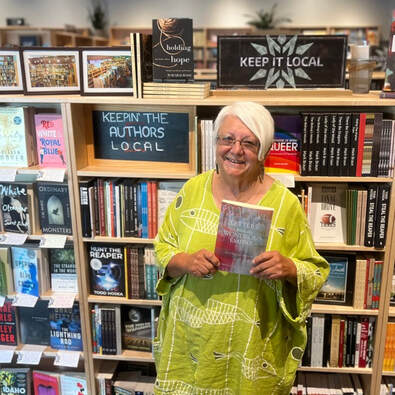 Cynthia Mosca is author of Letters from a Wondrous Empire: An Epistolary Memoir, chronicling her time teaching school in Ethiopia with the Peace Corps from 1967-69, based on letters she wrote to her family back home. This (then) single woman in her 20s from Wisconsin fell in love with Ethiopia, and remains so today! Save the date: We're hosting a talk with Cynthia on Tue, Sep 26th. (Mitch) What compelled you to write this book? (Cynthia) COVID. You know, I had started cleaning things out and ran across all these letters I had written from Ethiopia that my mother and my aunt had saved. I thought, "Maybe I should read these, it’ll be a trip down memory lane." And it was. Except there were parts I had no recollection of. So I got in touch with other people from Ethiopia I'd lost touch with over the years. I was in a writing group. And it just became this project. Which writing group were you in? I was in a writing group at the Unitarian Church with John Woodcock. I told them I would read these letters and respond to them. They encouraged me. So I started doing it, and it became more and more involved. How did you find a publisher? There's a group called the Peace Corps writers imprint. I submitted the book to them, and they accepted it! How did you connect to Morgenstern's? Not long after Morgenstern's opened, The Herald Times did a really big article about me and the book. I was out of town, but my partner Dennis dropped off a copy of the article and the book at the bookstore. I don't think you were doing events in-store at first. It took a while, but here we are! Let's rewind a bit: What did you do after the Peace Corps? I moved to Chicago, got married, and raised my kids there. I continued teaching. I taught various subjects including art and English as a second language, also became the director of a bilingual program in a K-8 school district. What brought you to Bloomington? When My partner Dennis and I retired, he decided he couldn't handle the traffic in Chicago anymore. So we looked around. We had a friend who lived in Bloomington who thought we'd really like it. So we drove into Bloomington. We drove past Baker's Junction, and then the Tibetan Cultural Center. and I was like, "Oh, my God, I love this place, I'll fit right in." And you are still very involved with Ethiopia? Yes! I'm President of the Ethiopia & Eritrea Returned Peace Corps Volunteers. I'll be donating royalties from the book to Save the Children, The International Rescue Committee, and Doctors Without Borders through Peace Corps volunteers in Ethiopia and Eritrea. We're also starting a new relief project through Save the Children for nine schools and two health clinics that were really affected by the civil conflict. I also support another organization called Selamta, which provides family homes for Ethiopian orphans. That's amazing. I wouldn't be able to keep up with you (laughs). And I look forward to speaking with you more on September 26th!
OK, The actual 1
1. Walk in the back door, bag still on shoulder, keys and coffee still in hand, and am immediately sidetracked seeing all the super cool books we received the previous day. Hmmm. I don’t remember ordering that one. That means Harry must have bought it. I always blame Harry for the weird titles I see but in reality, half the time it is me. Book buying is my favorite thing in the world. Well, almost. 2. With bag STILL on shoulder, keys and coffee STILL in hand, I say hello to the receiving team, Jack and Ryann….we get lost in mindless conversation about things like "why isn’t there a book that____" or ‘wouldn’t it be funny if____ ." It always ends up awkward and no great way to back out of the conversation. Probably one of my favorite parts of the day. We are all awkward. 3. Get to my office, fire up the laptop and cautiously glance at my email inbox. I left the previous day with 5 emails, today there are 93…..tears. 4. I procrastinate reading said 93 emails, wait the allotted 45 minutes (exaggeration) for my office lights to come on and walk the sales floor. I pass by all the tables full magic (books) and am reminded of all the books on my TBR list. Mentally I take note of which one I will purchase today, tomorrow, and the next day. I spend more than I make…. 5. While greeting all my fellow book nerds who showed up for the morning shift I glance toward the cafe, trying not to feel the pull it has on me…..No, I do not need a Matcha. No, I do not need a matcha…No, I do not…I’ll take a 20 oz Matcha, ’Jenna Style.’ (I am not pretentious, the baristas have named the drink.) You will have to come in and order it yourself to know what ‘Jenna Style’ is. Delicious. Our baristas are better than yours. 6. Face the rest of the day saying things like "Helmut, apologize" ... "‘No, we can NOT put that on social media" ... "Harry, your shirt is wrinkled" ... "Matthew, I can hear your laugh all the way in the back room!, and lastly, "Scatter" (Morgenstern's defines scatter as "stop congregating") Wait, did I eat lunch today? Todd is here for coffee… look busy.(Todd is an owner) Before I know it, I have cleaned up the accident in the bathroom, found the children’s book that was hiding in Science, gently asked the customer that fell asleep in the chair if they are ok, and my favorite, rebooting the computers ……because the internet went down…. Again. I love every aspect of my job, even the gross, irritating, and annoying moments. You see, at the store, we all are in this together; we want the same things. We work together to make the store better than the previous day. Running a bookstore is a labor of love. No one gets into the book business to make money or have banker’s hours, but I have the coolest job in the world and I wouldn't trade what I am doing for anything…..well, I guess there are SOME things I’d trade my job for. That will have to wait for another time. Find your books here, buy your books here, keep your bookstore here ~ Jenna Monrovia is a town in Morgan County, IN, about 30 miles north of Bloomington, with a population of just over a thousand. So we were surprised — but delighted — when Julie Dimmack reached out to us to order 520 copies of a book by Bloomington-based author Michael Koryta. Which were personally delivered by founder Rick Morgenstern. Mitch Teplitsky spoke with Julie to learn how this came about:
What's your position at the school? I am an English teacher and the department chair of Monrovia High School. This is my 20th year. Tell me about buying 520 copies of a single book! We are launching our annual community book club, One Town, One Book. We received grant money through The Community Foundation of Morgan County's new Thrive Grant. They matched the money we received from the Morgan County Coalition for Literacy, Morgan County Public Library, Monrovia HS and Tri Kappa of Morgan County. Every household linked to our school receives a copy: students, teachers, aids, administrators, bus drivers, cafeteria ladies, custodians, security officers. How did you choose Michael Koryta's book? Two important parts of our grant are choosing a high interest novel by an Indiana author and purchasing through a local independent bookseller. We thought that the boy in Those Who Wish Me Dead and his survival skills would be interesting to our students and community. How did you connect with Morgenstern's? There are not too many independent booksellers in the area. When we knew Koryta was our author, we chose the bookseller in his town. We knew about you because most of our teacher/librarian crew have spent time in Bloomington. What was your experience working with us? (you can be honest:) We had a great experience with efficient service and thorough communication with you guys. |
Archives
January 2024
CateGORIES |

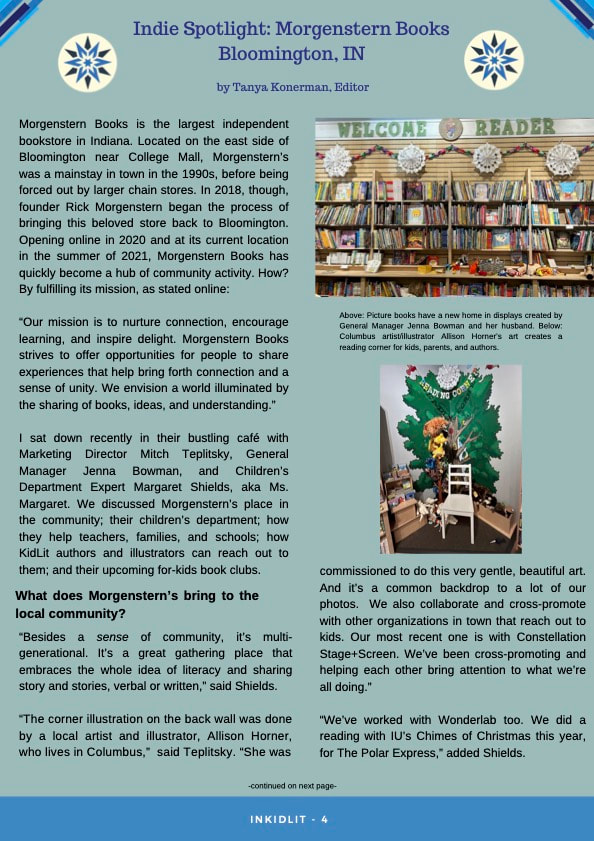
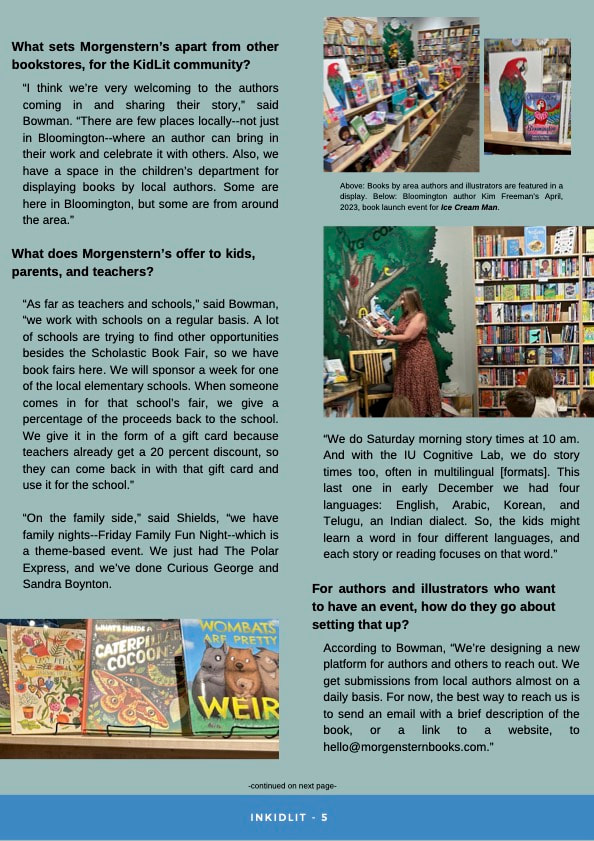
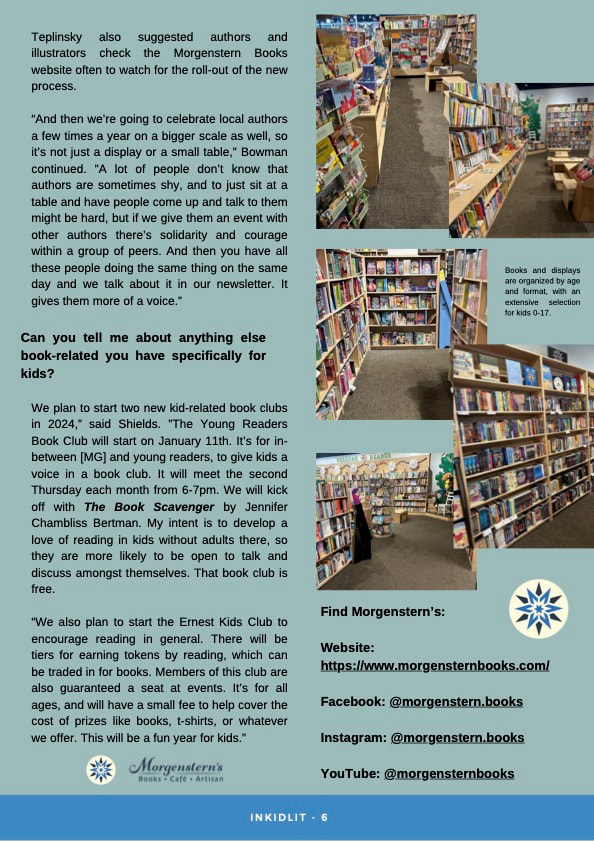
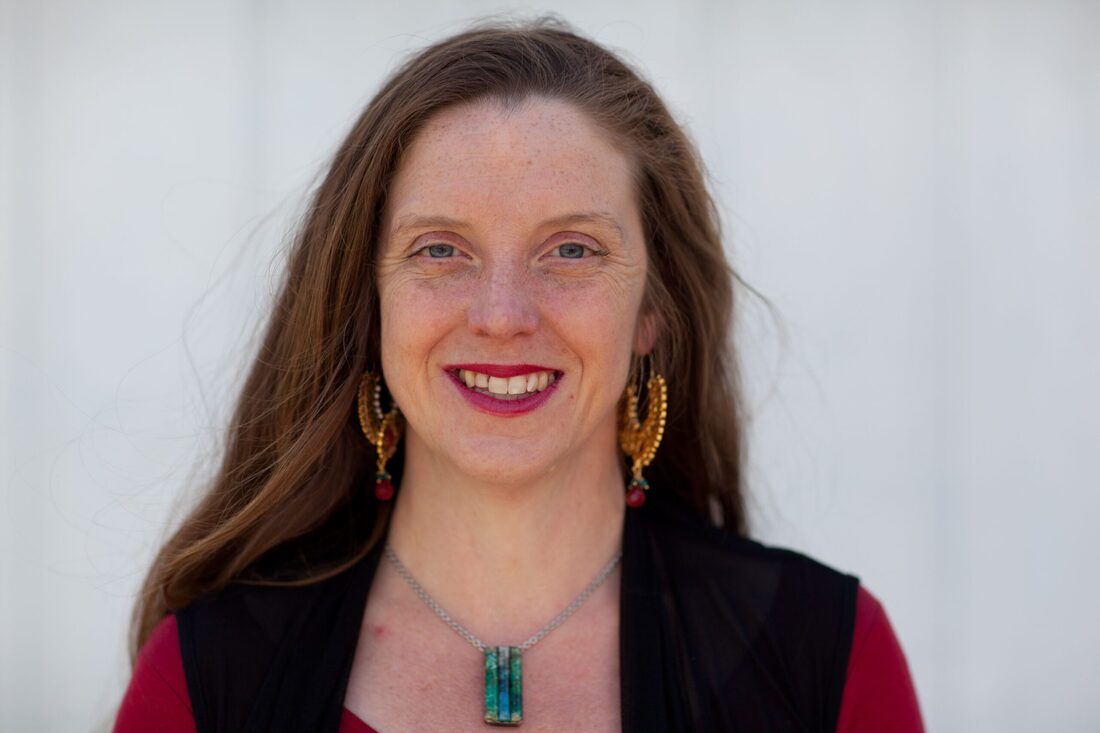
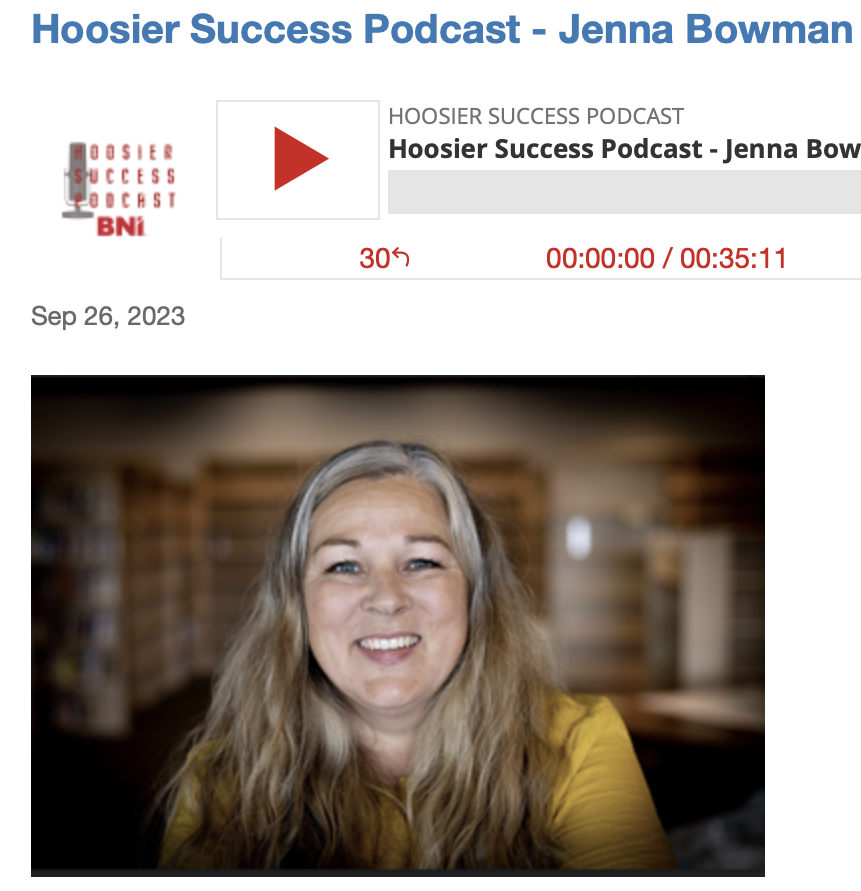
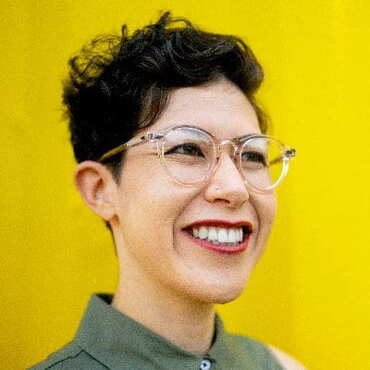
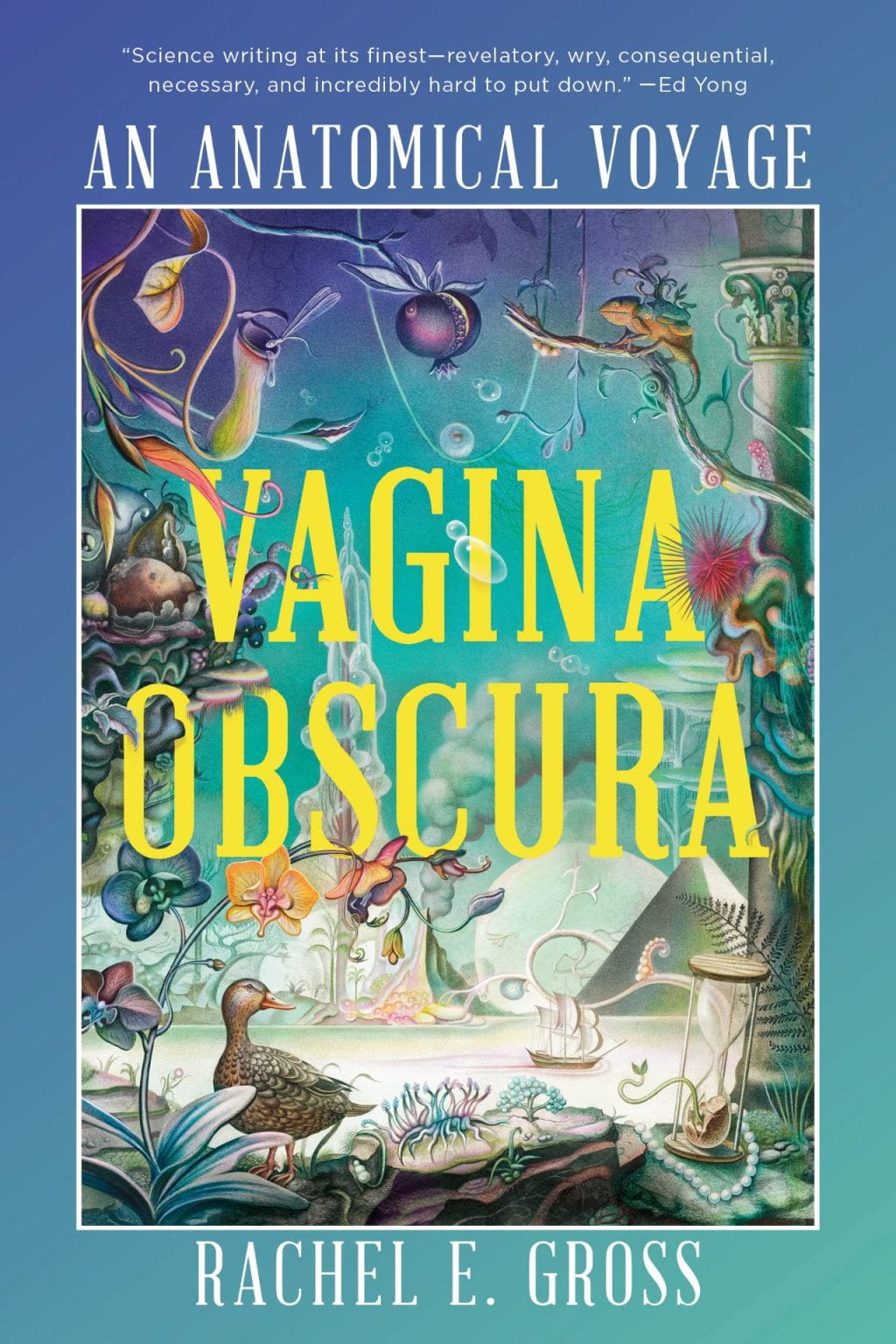
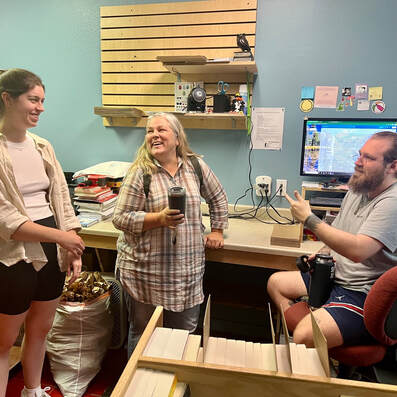
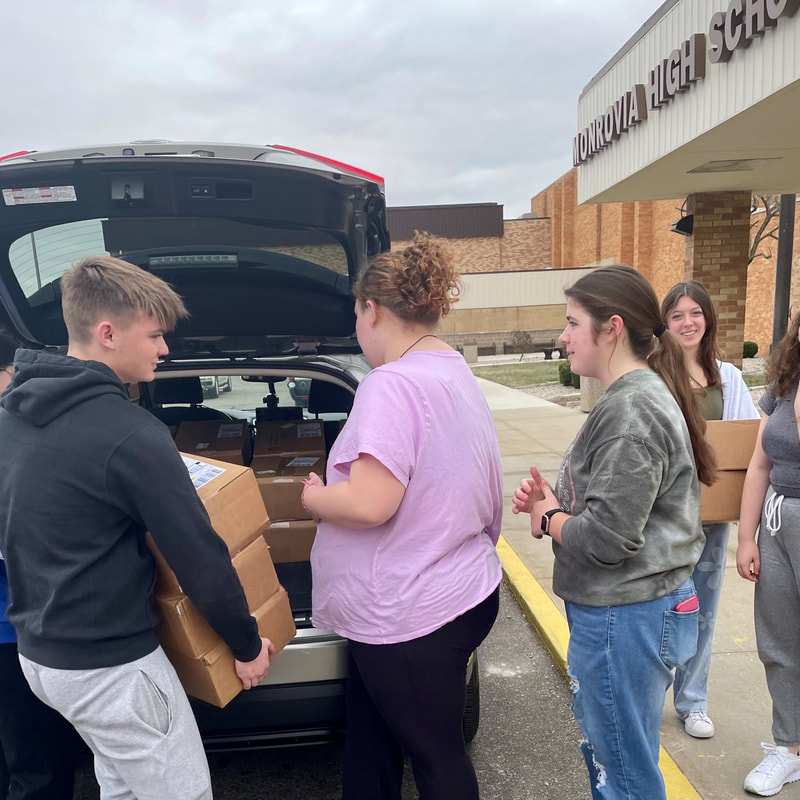
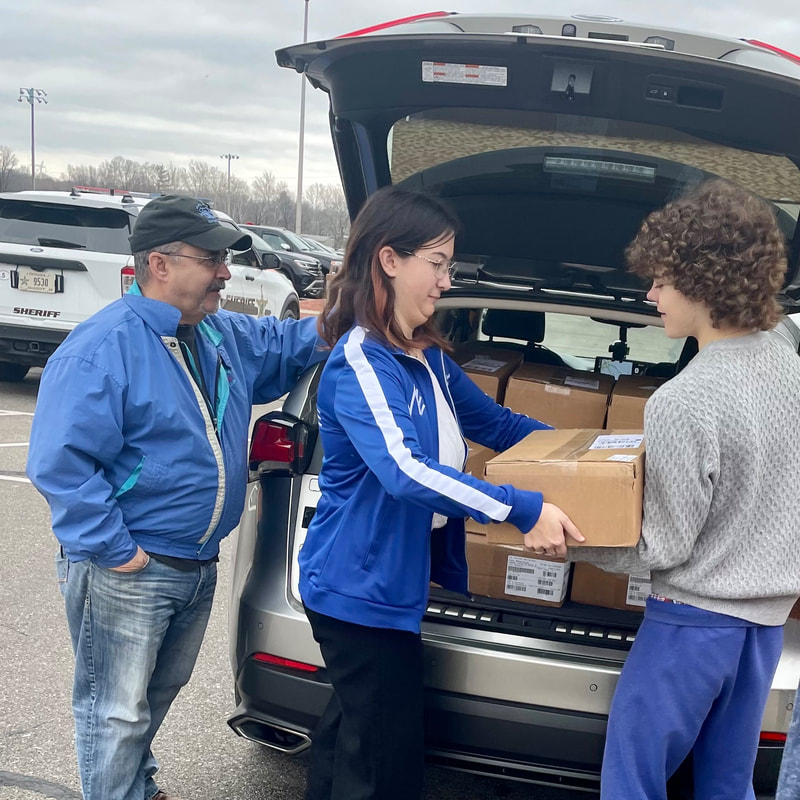
 RSS Feed
RSS Feed